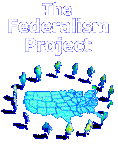|
|
Are On-Line
Porn Restrictions Legitimate Commercial Regulations? Decided May 13 In the 1988 Child Online Protection Act, using the Internet to disseminate sexually explicit material to minors became a federal crime. The "commercial purposes" involved, Congress maintained, makes the activity a valid target for federal legislation. How does the government distinguish "sexually explicit" e-commerce from, say, an internet ad featuring Britney Spears? It relies, among other things, on prevailing community standards of what is harmful to children.. Last year, the 3rd Circuit barred enforcement of COPA on First Amendment grounds ( ACLU v Reno No. 99-1324). The law's reliance on contemporary community standards in defining what is harmful to kids was deemed too vague in an online world without geographical borders. As Circuit Judge Garth explains, "Because material posted on the Web is accessible by all Internet users worldwide, and because current technology does not permit a Web publisher to restrict access to its site based on the geographic locale of each particular Internet user, COPA essentially requires that every Web publisher subject to the statute abide by the most restrictive and conservative state's community standards in order to avoid criminal liability." A fragmented Supreme Court, in May, partly upheld COPA but kicked the case back to the 3rd Circuit for further consideration. Justice Thomas, writing for the Court, rejected the 3rd Circuit's view that the online world was no place for community standard standards: "if we were to hold COPA unconstitutional because of its use of community standards, federal obscenity statutes would likely also be unconstitutional as applied to the Web." There are, however, plenty of other constitutional problems that should be addressed by the lower Court.
|
||||||||||||||

